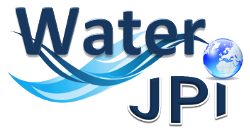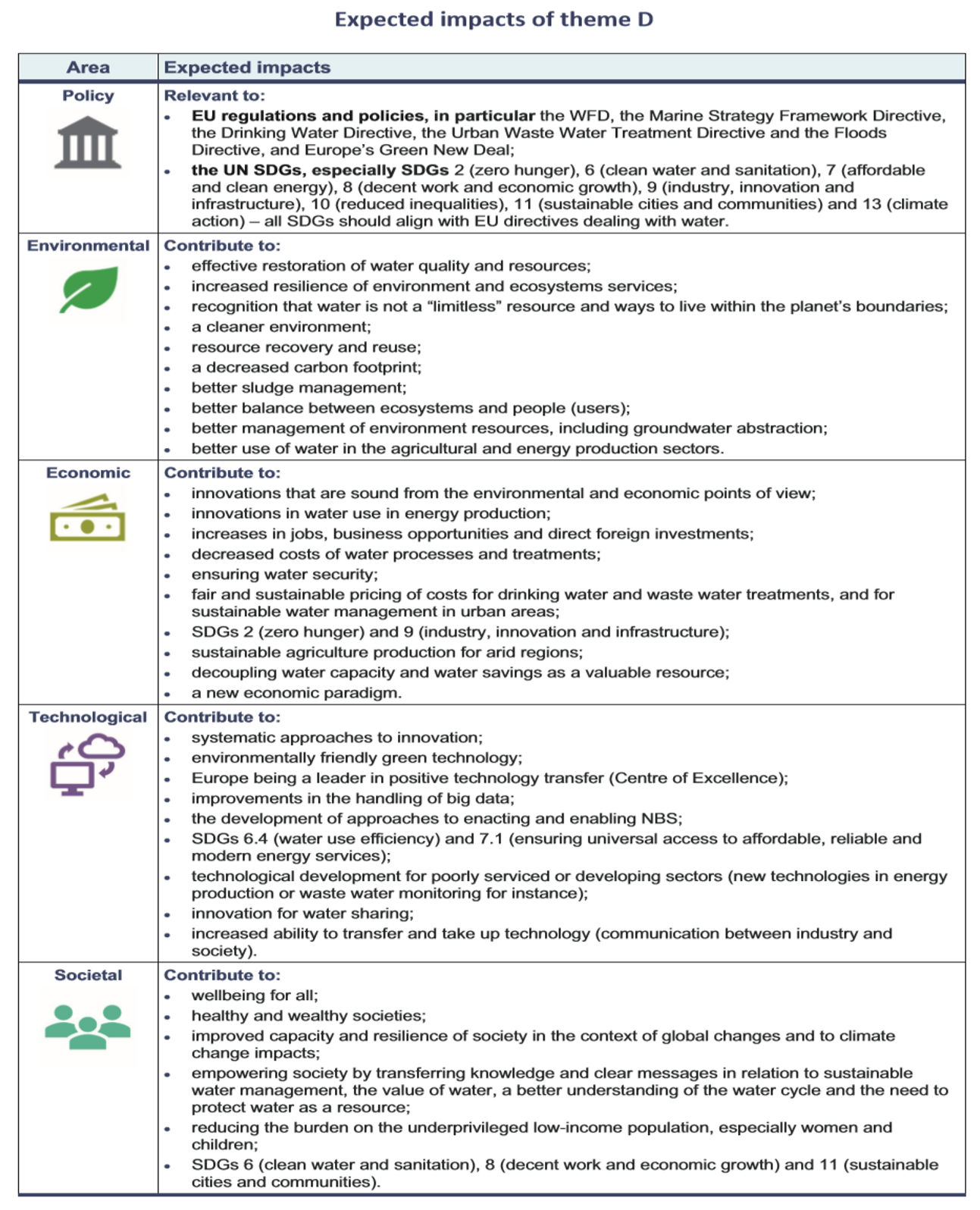SRIA 2025 Theme D - Sustainable Water Management
Climate change has led to an unpredictability in the water cycle in recent years. Unprecedented levels of flooding and drought in recent times have added to a water infrastructure that is already challenged. Globally, drivers such as climate change, population growth and economic development have placed significant pressure on water resources. Agriculture accounts for 44% of all total water abstracted in the EU and reaches even higher proportions in southern regions. Crop adaptation to water shortages, as well as in aquifers in coastal areas on account of groundwater abstraction and in groundwaters as a result of tidal fluctuations, require further monitoring and research. Adapting water resources management to deal with increased uncertainty (in terms of drivers such as climate change, demands/supply) will therefore require developing innovative and robust decisionmaking approaches. Sustainable water resources management considers all components of the water cycle, particularly with respect to climate and global change and devising appropriate solutions. There is a requirement to develop knowledge of sustainable water resource management, such as management at a catchment scale for different users.
Ensuring the sustainability of water supplies for increasing water demand requires holistic optimisation of the WEFE Nexus approach and it has been suggested that the definition should be broadened to include resource use and health. Food security will be more challenging as resources (water, nutrients, land, energy) become limited, urbanisation/migration/consumption increases and water quality is compromised. The Nexus approach also considers the synergies and trade-offs associated with the management of all resources. Understanding those can help to mitigate and prioritise interventions. In terms of governance, a global management system for water is needed, specifically a negotiation mechanism, as well as a global water strategy.
Research outcomes in this theme can lead to new innovative solutions, a better understanding of the interlinkages and interdependencies of the Nexus approach and a better integration of EU and international policies, as well as across sectors, such as agriculture, water, waste, energy and climate. Research should also contribute to the lessening of political conflicts in relation to water policies, which in turn have an impact on migrant and seasonal workers.
Theme D is composed of:
Sub-theme D.1: Optimising the Nexus approach
Sub-theme D.2: Adapting water resources management to deal with increased uncertainty
Sub-theme D.3: Enabling sustainable management of water resources

